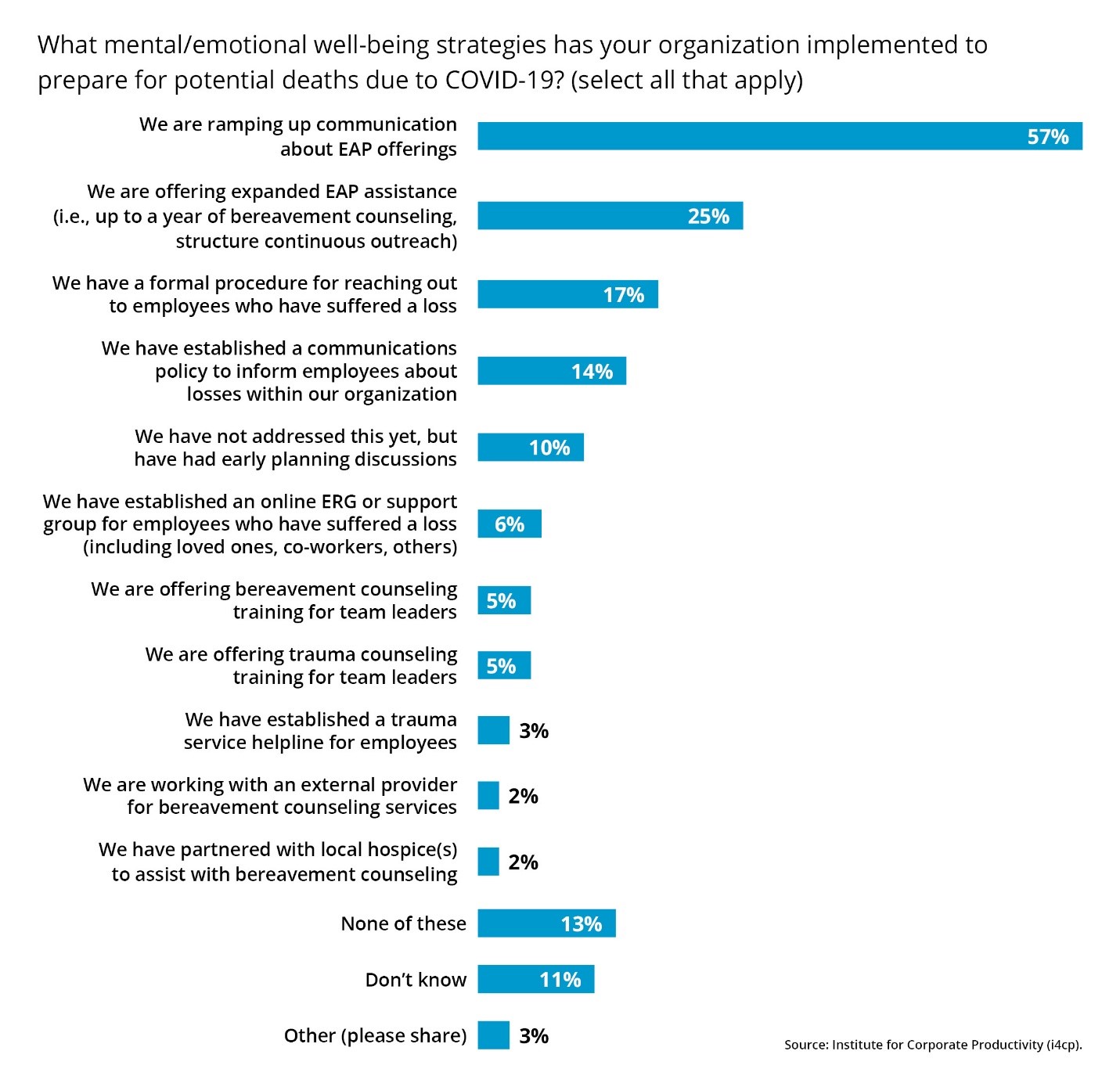Co's Expand EAP Offerings to Help Employees Deal with Pandemic Losses

More than half (57%) of the diversity and inclusion (D&I) leaders surveyed by the Institute for Corporate Productivity (i4cp) say that ramping up communications to heighten awareness of Employee Assistance Program (EAP) offerings is a strategy their companies have implemented to prepare for deaths due to COVID-19.
Last week began with worldwide losses due to the coronavirus pandemic totaling more than 116,000 people.
And in a Monday morning news conference, Governor Andrew Cuomo of New York announced that the number of lives lost in his state due to COVID-19 had reached more than 10,000—about 5x the number of those who perished on September 11, 2001.
Those are sobering statistics.
To ensure that their workforces have support when family members, friends, co-workers or others are lost, D&I leaders surveyed also reported:
- 25% of organizations have moved to expand EAP assistance to offer longer-term bereavement counseling and follow-up for employees.
- In some organizations (18%), formal procedures are already in place to reach out to employees who have suffered a loss.
An all-that-apply response option means total exceeds 100%
Notably, only 10% of surveyed leaders reported that they hadn’t addressed the issue yet, although they had held initial discussions to plan their efforts. Some other strategies companies are leveraging to help their employees during times of loss and bereavement caused by the pandemic:
- Using established communications policies to inform workers about losses within the organization
- Establishing an online ERG or support group for employees who’ve lost loved ones, co-workers, or others
- Training team leaders to provide bereavement counseling
- Training team leaders to provide trauma counseling
Recent research by i4cp into considerations related to diverse employee communities has confirmed that many companies are tapping their ERGs to help with communications related to COVID-19 and to strengthen engagement among their members during this uncertain period.
The groups also offer established resources organizations can leverage in times of loss. ERGs can be especially powerful in this role because of variations (cultural, geographic, etc.) in customs and views about death. Their interventions can offer support from established and trusted colleagues at times when emotions and feelings of vulnerability are heightened.
In companies choosing to establish new ERGs or support groups for those suffering losses, it is important to note that individuals who haven’t lost others have, nonetheless, lost the security of life-as-usual, the ability to attend religious or other supportive gatherings, and more. Flexibility should be applied in thinking about loss and the kinds of groups needed to help employees adjust to an abruptly altered world.
Other survey questions explored organizations’ use of skills inventories as tools to help redeploy talent in response to the pandemic and asked about support for parents with young children in their care.
Download the full survey results — due to the current global health and productivity crisis affecting everyone, i4cp is making all related ongoing research publicly available.
We also encourage you to visit i4cp.com/coronavirus for other employer resources including discussion forums, next practices, useful resources, and more.






